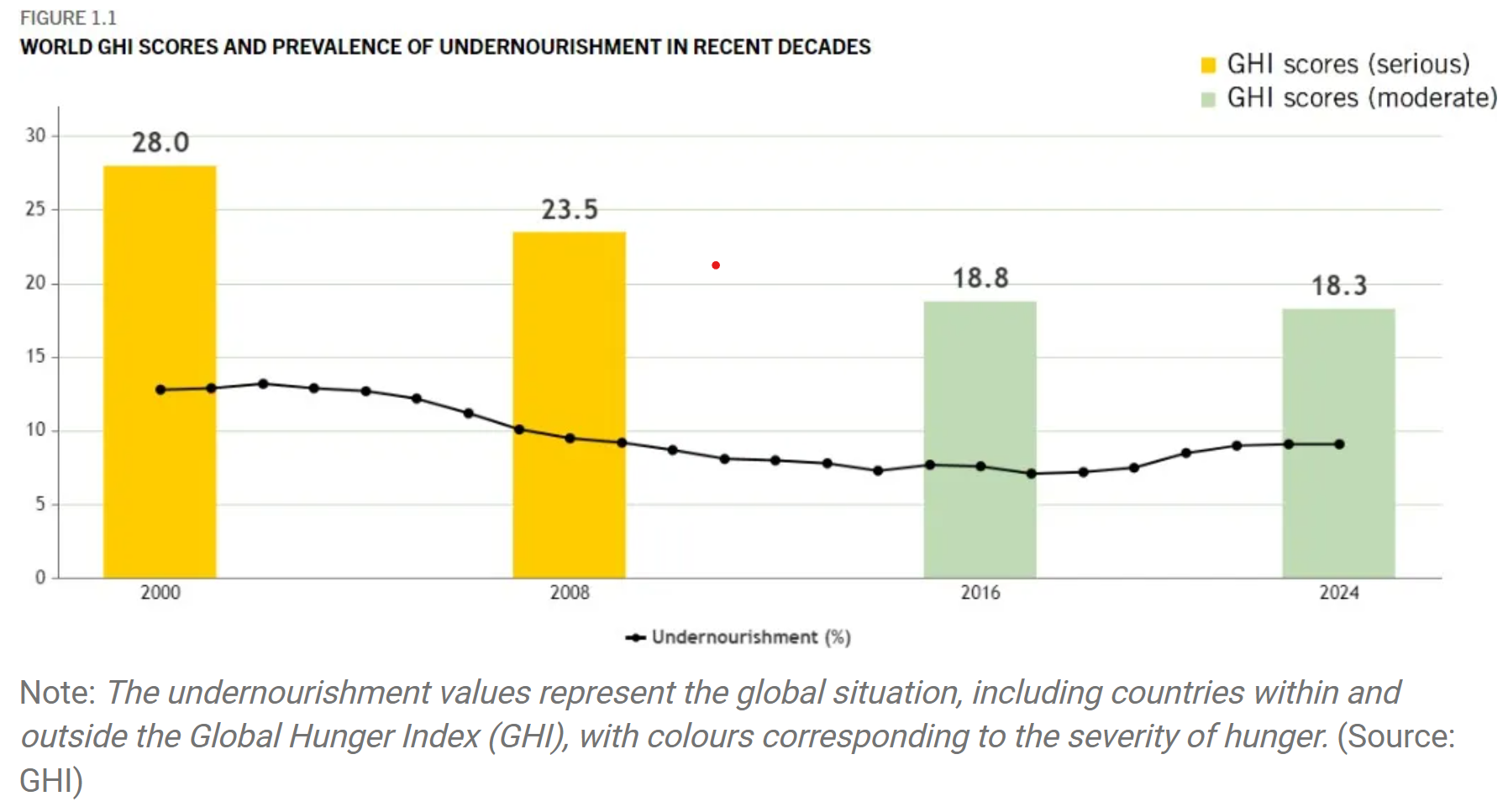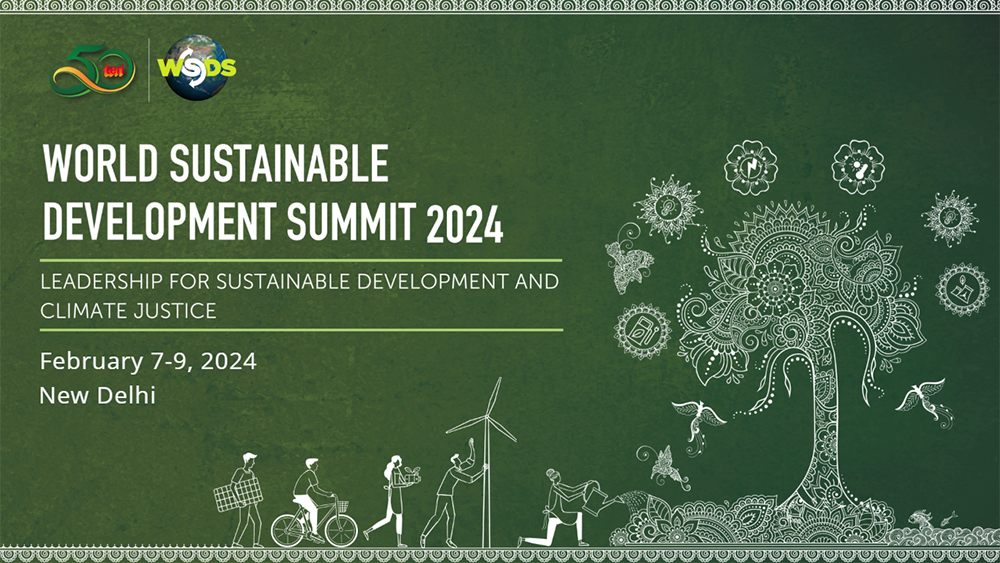Global Hunger Index 2024

- 14 Oct 2024
In News:
The 2024 Global Hunger Index (GHI) emphasizes food as a fundamental human right, alongside air and water.
Key Highlights:
- Current Crisis: Despite adequate food production globally, around 350 million people face extreme hunger, with 49 million on the brink of famine.
- Statistics: Over 820 million people are chronically undernourished, and malnutrition claims the lives of five million children under five each year.
Top 10 Countries Most Affected by Hunger (2024)
- Somalia: GHI Score 44.1 (GHI 2000: 63.3)
- Yemen: GHI Score 41.2 (GHI 2000: 41.6)
- Chad: GHI Score 36.4 (GHI 2000: 50.5)
- Madagascar: GHI Score 36.3 (GHI 2000: 42.3)
- Democratic Republic of the Congo: GHI Score 34.9 (GHI 2000: 47.2)
- Haiti: GHI Score 34.3 (GHI 2000: 39.8)
- Niger: GHI Score 34.1 (GHI 2000: 53.1)
- Liberia: GHI Score 31.9 (GHI 2000: 48.0)
- Central African Republic: GHI Score 31.5 (GHI 2000: 48.0)
- Korea (DPR): GHI Score 31.4 (GHI 2000: 43.7)
India's Position
- Ranking: India ranks 105th in the GHI 2024, categorized as having a "serious" hunger situation.
- GHI Score: India’s score stands at 27.3, showing some improvement from a score of 38.4 in 2000 (previously classified as "alarming").
Key Concerns in India
- Undernourishment: 13.7% of the population is undernourished.
- Child Stunting: 35.5% of children under five are stunted.
- Child Wasting: 18.7% of children under five experience wasting.
- Child Mortality: 2.9% of children do not survive to age five.
Global Hunger Index (GHI):
A tool measuring hunger across countries based on four indicators:
-
- Undernourishment
- Child Wasting
- Child Stunting
- Child Mortality
- Data Sources: The GHI is based on data from credible organizations like the FAO, WHO, and UNICEF, as well as government surveys.
Hunger Indicators Explained
- Undernourishment: Reflects the overall food access situation.
- Child Wasting: Indicates acute malnutrition; a critical health issue.
- Child Stunting: Reflects chronic malnutrition; significant public health concern.
- Child Mortality: Represents the most severe consequence of hunger.
The 2024 GHI report reveals that while progress has been made in addressing hunger globally, significant challenges remain, particularly in countries like India and the most affected nations. Addressing these issues is crucial for achieving the goal of zero hunger by 2030.
World Sustainable Development Summit 2024 (TERI)

- 08 Feb 2024
Why is it in the News?
Vice-President Jagdeep Dhankhar inaugurated the World Sustainable Development Summit in New Delhi recently in the presence of Prime Minister of Guyana Mark Phillips.
About the World Sustainable Development (WSDS) Summit:
- The WSDS Summit, organized annually by The Energy and Resources Institute (TERI), stands as a flagship event in the realm of sustainable development.
- Instituted in 2001, the Summit series boasts a distinguished legacy spanning over two decades, dedicated to advancing 'sustainable development' as a universally embraced objective.
- Distinguished as the sole independently convened international summit on sustainable development and environment originating from the Global South, the WSDS endeavours to forge enduring solutions for the global community.
- It achieves this by convening the world's foremost leaders and intellectuals on a singular platform.
- The upcoming WSDS 2024 marks the 23rd edition of this significant summit, revolving around the theme 'Leadership for Sustainable Development and Climate Justice'.
Key Facts about The Energy and Resources Institute (TERI):
- TERI stands as a premier think tank committed to conducting research aimed at fostering sustainable development in India and across the Global South.
- Established in 1974 as an information centre focusing on energy issues, TERI expanded its scope to encompass multifaceted research, policy analysis, consultancy, and implementation initiatives.
- TERI's research endeavours, commencing in the late 1980s, are rooted in its steadfast belief that the efficient utilization of energy and sustainable management of natural resources are indispensable for developmental progress.
- Across various sectors, TERI concentrates its efforts on:
- Promoting the efficient utilization of resources
- Enhancing access to and adoption of sustainable practices and inputs
- Mitigating environmental and climate impacts
- TERI's headquarters are located in New Delhi, serving as a hub for its diverse activities and initiatives.
